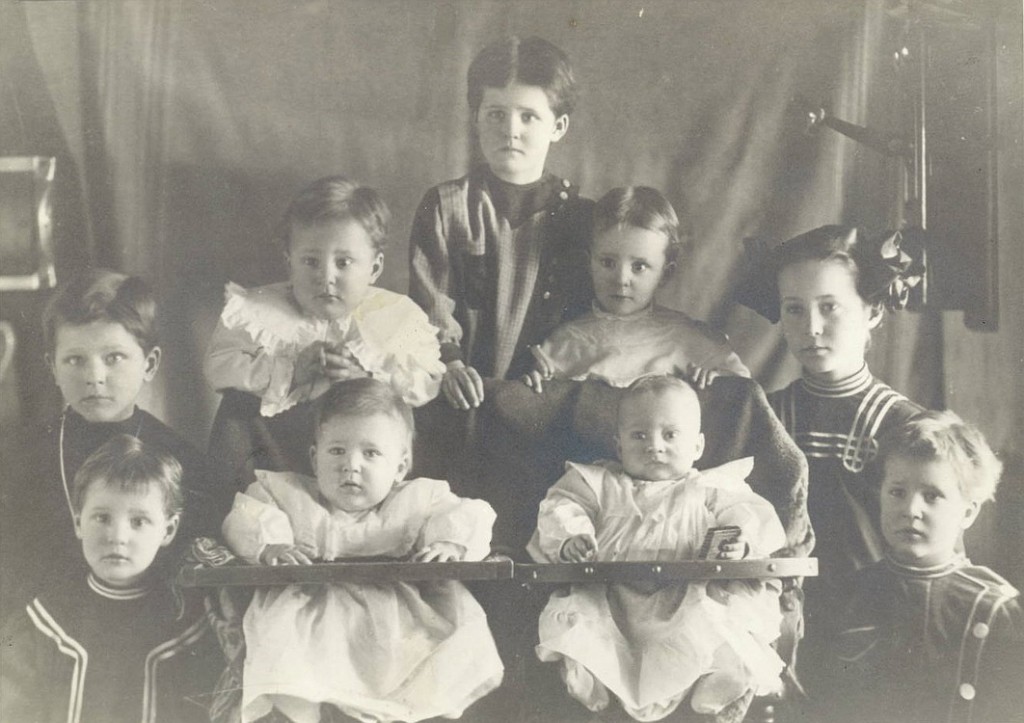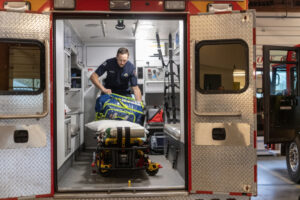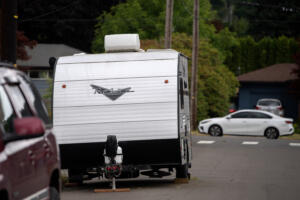At Veda’s memorial service in November 1997, a poem that Ralph had penned as a child, “When the stork visits our house,” was read. Suzy, her daughter-in-law, included it with Christmas cards that year as well. “We hope you will enjoy it and think of Grandma Veda…” the card said.
“One time at our house things was a flurry.
Pa calls the Doc up in a big hurry;
He told us three kids to go hit the hay.
We were all glad to get out of his way.
I heard Pa saying, “This’ll make four.
Doc, I don’t guess I could feed any more.”
A little bit later I heard Doc put in,
“This time ain’t four, cause this time it’s twins.”
Pa had an awful time fixin’ two kids.
Why does the stork come when Ma’s sick in bed?
I heard Pa a cussin’ “It sure isn’t fun
Dressing two kids in clothes made for one.”
When those two kids were beginning to walk
Pa calls again and sez “It’s the stork.”
Later Doc told Pa “You’ve got twins once more.”
There was plop like Pa hit the floor.
It took Pa a year to get over that shock,
Then one night again he went and called Doc.
After a bedlam of bangin’ and noise
I heard Doc tell Pa “This time it’s two boys.”
Then for some time there wasn’t a fuss.
I thought sure the stork had quit bothering us.
But early one morning the hired girl said,
“your folks got new twins over there on the bed.”
The last time that everything got in a flurry
The stork brought one girl, an’ left in a hurry.
Pa said he hoped “that darn bird was through.
He’d just brought one kid, but Ma had clothes for two.”
Veda Grace Frothinger Lanz was the third of 12 children born to a farming family in South Dakota.
The number of kids was not at all unusual for the early 20th century, especially in a rural area. What was eyebrow raising was that there were four sets of twins among the 12. At one point, there were eight children, all 5 years of age and younger, living in the small home of George and Ella Frothinger. This was in a time before washing machines, dishwashers, microwaves, disposable diapers, grocery stores, and for many, electricity.
In those days, everything was bartered. People grew their own vegetables, raised beef and pork, and did their own canning. There wasn’t much opportunity for down time, although the kids still found ways to make mischief.
Veda’s son, longtime Camas resident Jerry Lanz, recalls a poem his uncle Ralph, wrote about him and his sisters taking the younger siblings for what was supposed to be a leisurely walk.





